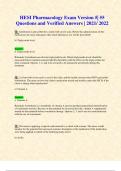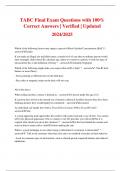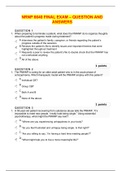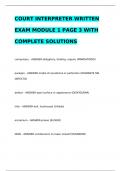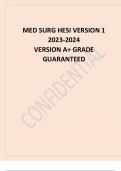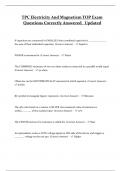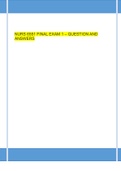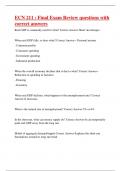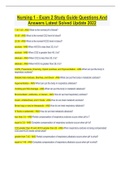Essay
Final Essay Politics and International Relations 1A: Concepts (PLIT08017)
- Institution
- The University Of Edinburgh (ED)
Final Essay from Politics and International Relations 1a: Concepts and Debates Take Home Exam. Covers two prompts related to candidate representation in politics and how journalism can support democracy. Both essays contain a myriad of in-depth and relevant examples surrounding whistleblowers, watc...
[Show more]




